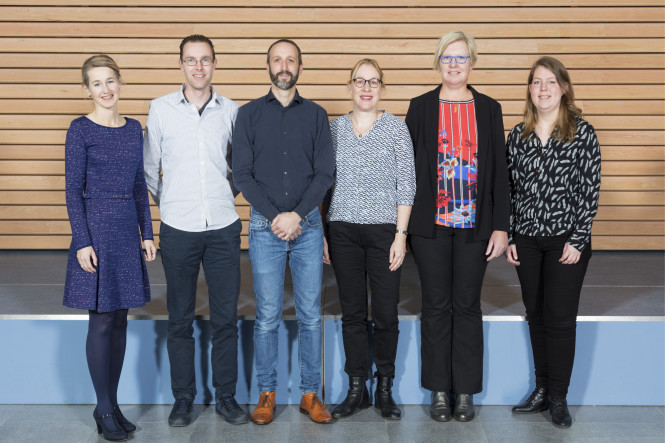Eurotransplant
Eurotransplant was founded by in 1967 by Prof. Jon J. van Rood, head of the same department, with the aim to increase availability of immunologically compatible organ transplants by incrementing the size of the donor pool. Currently, eight European countries participate in Eurotransplant: Austria, Belgium, Croatia, Germany, Hungary, Luxembourg, the Netherlands and Slovenia.
The virtual crossmatch
Before a kidney and/or pancreas transplant can be performed, immunological compatibility between donor and recipient is assessed by a laboratory test, called a crossmatch. For this test, serum of the intended recipient is mixed with blood cells of the donor. The test becomes positive when the recipient’s blood contains pre-formed antibodies against tissue antigens of the donor, since these antibodies will attack the donor cells. Traditionally, the crossmatch is performed at the donor center with the most recent serum sample for immunized patients that are known to have antibodies against tissue antigens. This procedure prevents shipment of incompatible donor organs to the recipient center, but increases cold ischemia times of the organs for the duration of the test (about 5 hours). The crossmatch is repeated at the recipient center, using several serum samples of the candidate recipient as a last immunological check before transplantation.
Eurotransplant has now replaced the laboratory test performed at the donor center for a virtual crossmatch test. In order to perform the virtual crossmatch, the exact specificity of antibodies against tissue antigens are registered centrally at Eurotransplant, for those patients known to have such antibodies. When a new organ donor is registered at Eurotransplant, it is determined in silico whether the antibodies are directed against tissue antigens present on the donor organ. Hereby, potential recipients with antibodies against the donor organ are excluded. The virtual crossmatch is much more specific for the antibodies that may cause rejection of the transplant, and vastly reduces cold ischemia times, thereby improving organ quality. Before implementation of the virtual crossmatch, the ETRL has intensively monitored the performance of tissue typing laboratories in the definition of transplantation relevant antibodies in immunized patients, as part of its quality assurance program.
Pioneering technical developments
To make the virtual crossmatch possible, a new computer program had to be built, based on detailed immunological principles. With the introduction of the virtual crossmatch, Eurotransplant is the first solid organ allocation organization to implement a fully digital and standardized method of transferring and processing tissue typing data of deceased organ donors. Also, Eurotransplant can now determine the relative level of immunization of a recipient in comparison to the organ donor pool on the level of all transplantation relevant tissue antigens, with unprecedented precision.
The increased specificity of the virtual crossmatch, combined with shorter cold ischemia times increases the chance for sensitized patients to receive an immunologically compatible, high quality organ within the Eurotransplant region.
